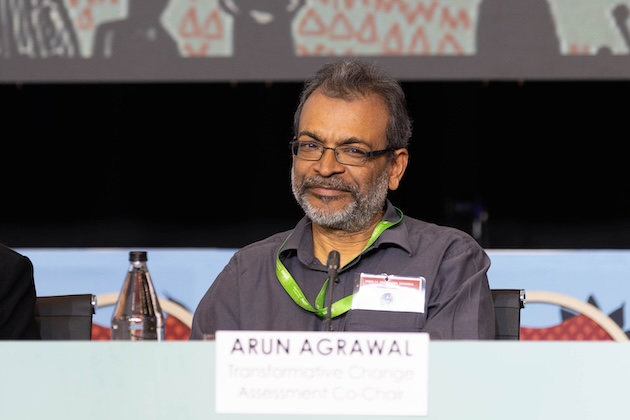WINDHOEK, Dec 19 (IPS) – Nature is at a tipping point. With human activity having pushed up to 1 million plant and animal species close to extinction, securing sustainable development and halting global biodiversity collapse is no longer just an option but a requisite for human wellbeing.
A new report by the Intergovernmental Science-Policy Platform on Biodiversity and Ecosystem Services (IPBES) clarifies that only transformative change can reverse the biodiversity crisis and reset humanity’s relationship with nature for just and sustainable futures.
The IPBES Assessment Report on the Underlying Causes of Biodiversity Loss and the Determinants of Transformative Change and Options for Achieving the 2050 Vision for Biodiversity, also known as the Transformative Change Report, launched this week during the 11th IPBES Plenary session being held in Namibia, has a stark warning: biodiversity decline is galloping ahead, whipped up by humanity’s disconnect from and dominance over nature, coupled with the inequitable concentration of power and wealth. The prioritization of short-term individual and material gains, the report argues, has also led to the destruction of the fabric of life.
Change and Act Now
The report highlights the need for addressing biodiversity loss through what the authors describe as transformative change—fundamental systemwide shifts in views, including ways of thinking, knowing, and seeing; structures, such as ways of organizing, regulating, and governing; and practices, including ways of doing, behaving, and relating. According to the report, dominant worldviews, structures, and practices have played a significant role in accelerating biodiversity loss. The findings suggest that exploring alternative approaches could contribute to reducing biodiversity loss and achieving a more just and sustainable future.



“Transformative change for a just and sustainable world is urgent,” says Karen O’Brien (Norway/USA), co-chair of the assessment with Arun Agrawal (India & USA) and Lucas Garibaldi (Argentina). “There is a closing window of opportunity to halt and reverse biodiversity loss and to prevent triggering the potentially irreversible decline and the projected collapse of key ecosystem functions,” she added.
O‘Brien cites that under current trends, there is a serious risk of crossing several irreversible biophysical tipping points, including die-off of low-altitude coral reefs, die-back of the Amazon rainforest, and loss of the Greenland and West Antarctic ice sheets.




